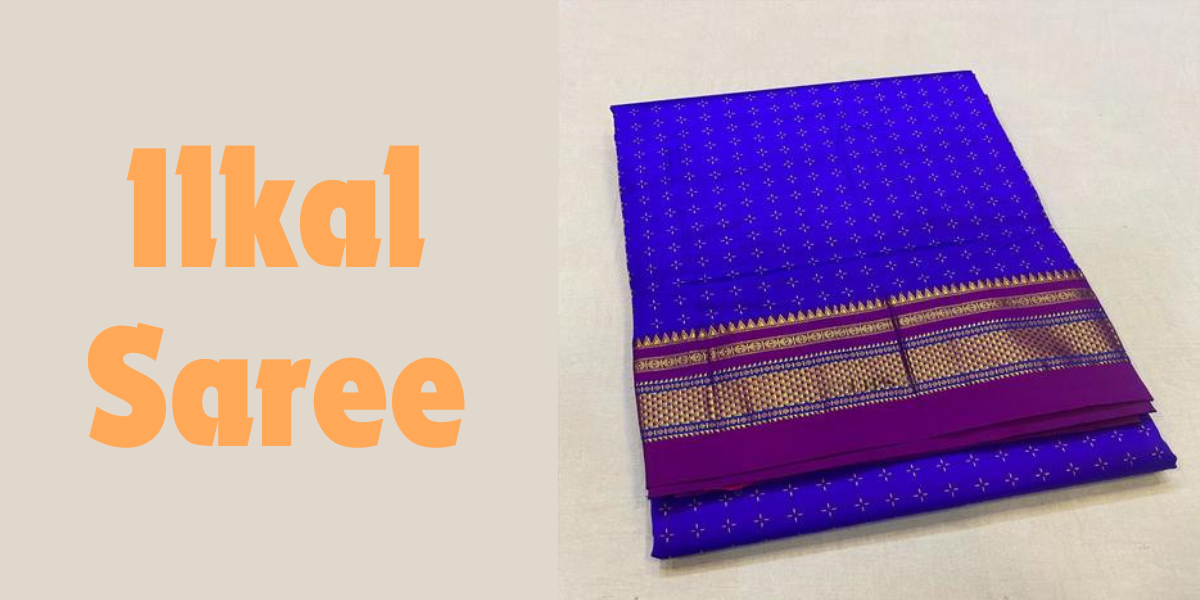The Ilkal Saree is a renowned traditional garment originating from the town of Ilkal in the Bagalkot district of Karnataka, India. Known for its rich history, intricate weaving techniques, and distinctive patterns, the Ilkal saree is a symbol of cultural heritage and timeless elegance. This article delves into the unique aspects of Ilkal sarees, exploring their history, craftsmanship, and significance in contemporary fashion.
The History of Ilkal Sarees
Origins and Evolution
Ilkal sarees date back to the 8th century, with their origins rooted in the Chalukya dynasty. The town of Ilkal became a prominent weaving center due to its strategic location and access to high-quality cotton and silk. Over centuries, the craft has been passed down through generations, preserving the traditional techniques and motifs that define these exquisite sarees.
Cultural Significance
The Ilkal saree holds a special place in the cultural fabric of Karnataka. Traditionally, these sarees were worn during significant events such as weddings and festivals, symbolizing prosperity and grace. Today, they continue to be a preferred choice for special occasions, embodying the rich heritage and craftsmanship of the region.
Distinctive Features of Ilkal Sarees
Unique Weaving Techniques
The making of an Ilkal saree involves meticulous craftsmanship and intricate weaving techniques. The sarees are handwoven using a combination of cotton and silk threads, with the pallu (the decorative end piece) often featuring elaborate designs. One of the standout features is the tope teni technique, where the pallu and body of the saree are woven separately and then joined together seamlessly.
Signature Borders and Pallus
Ilkal sarees are characterized by their distinct borders and pallus. The borders, known as chikki paras, gomi, and jari, come in various colors and patterns, often featuring contrasting hues that enhance the overall appearance of the saree. The pallu, on the other hand, is adorned with traditional motifs such as temples, peacocks, and floral designs, adding a touch of elegance and cultural symbolism.
Vibrant Colors and Patterns
The vibrant color palette of Ilkal sarees is another defining attribute. These sarees typically feature bold and striking colors such as red, blue, green, and yellow, often combined in unique patterns. The use of natural dyes ensures that the colors remain vibrant and long-lasting, adding to the saree’s appeal and durability.
Crafting an Ilkal Saree: The Process
Selection of Materials
The journey of an Ilkal saree begins with the careful selection of materials. High-quality cotton and silk threads are chosen for their strength and luster. The cotton is sourced locally, while the silk is often brought in from neighboring states, ensuring the finest quality for each saree.
Weaving and Dyeing
The weaving process is a labor-intensive art that requires precision and skill. The threads are dyed using natural dyes, which are derived from plants and minerals, ensuring eco-friendliness and vibrant hues. The dyed threads are then woven on traditional handlooms, with artisans meticulously crafting each saree over several days or even weeks.
Finishing Touches
Once the weaving is complete, the saree undergoes a series of finishing touches. This includes washing, starching, and ironing to enhance the texture and appearance of the fabric. The final product is a stunning Ilkal saree that reflects the dedication and expertise of the artisans.
The Contemporary Appeal of Ilkal Sarees
Modern Adaptations
While Ilkal sarees are steeped in tradition, they have also evolved to meet contemporary fashion trends. Designers are experimenting with new patterns, color combinations, and fabrics to create modern variations of the classic Ilkal saree. These adaptations ensure that Ilkal sarees remain relevant and appealing to younger generations.
Sustainable Fashion
In an era where sustainable fashion is gaining prominence, Ilkal sarees stand out as an eco-friendly choice. The use of natural dyes and handwoven techniques aligns with the principles of sustainability, making these sarees a preferred option for environmentally conscious consumers.
Global Recognition
Ilkal sarees have transcended regional boundaries and gained recognition on the global stage. Their unique charm and cultural significance have attracted fashion enthusiasts and collectors worldwide, contributing to the preservation and promotion of this traditional craft.
Conclusion
The Ilkal saree is more than just a piece of clothing; it is a testament to the rich cultural heritage and skilled craftsmanship of Karnataka. With its unique weaving techniques, vibrant colors, and intricate patterns, the Ilkal saree continues to captivate and inspire. As we celebrate this timeless tradition, we also embrace its evolution, ensuring that the legacy of Ilkal sarees endures for generations to come.
Read More Our Blogs



